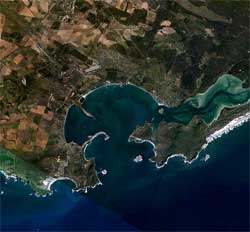
Top stories






More news


Marketing & Media
Ads are coming to AI. Does that really have to be such a bad thing?














Speaking during the tabling of the bill to the National Council of Provinces (NCOP) in Parliament on Tuesday (18 February), Department of Trade and Industry (dti) Minister Rob Davies said the bill also aims to support balanced regional industrial growth and the development of more competitive and productive regional economies.
Its adoption will also be a significant milestone in pursuit not only of the NDP but of the New Growth Path (NGP) and Industrial Policy Action Plan (IPAP).
SEZs are defined as geographically designated areas of a country set aside for specifically targeted economic activities, supported through special arrangements and systems that are often different from those that apply to the rest of the country.
To date five Industrial Development Zones (IDZs) have been designated which include Coega, East London, Richards Bay, OR Tambo and newly designated Saldanha Bay.
"I can confidently indicate that there are already eight investors in the oil and gas sector that are willing to invest at Saldanha Bay's IDZ. Three of the five IDZs in Coega, East London and Richards Bay are fully operational," he said, adding that there were a total of 42 operational investments worth R4bn.
He said there were weaknesses identified within the IDZs and these include weak governance, lack of incentives and poor stakeholder co-ordination.

Davies said the criteria for IDZ designation were biased towards the development of coastal regions and ignored much of the economic potential in inland regions.
"The aim of the SEZ Bill is to boost private investment (domestic and foreign )and increase job creation, competitiveness, skills and technology transfer," said Davies, adding that there is a special focus on beneficiation of materials.
The bill provides for the designation of the following types of SEZs:
The SEZ Bill consultative process started in 2010 with all relevant stakeholders across three spheres of government and state-owned enterprises.
The dti is currently preparing for the implementation of the SEZ Bill by consulting with all the provinces and identifying potential SEZs.
"As a result, we have commissioned pre-feasibility and feasibilities studies in the various provinces and the designation of new SEZs will take place once the new regulations are in place," Davies said.
SAnews.gov.za is a South African government news service, published by the Government Communication and Information System (GCIS). SAnews.gov.za (formerly BuaNews) was established to provide quick and easy access to articles and feature stories aimed at keeping the public informed about the implementation of government mandates.
Go to: http://www.sanews.gov.za